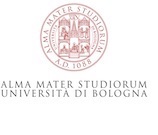|
“Decoloniality” is a common word today in the humanities and the social sciences. Even “Decolonial Humanities” is some time used although it did not have its Google’s niche yet. Although the use is becoming wide spread, we will concentrate in one particular universe of meaning or theory if you wish: that becoming known as modernity/coloniality. The slash here means that modernity and coloniality are different but unavoidable stich to each other, from its beginning in the sixteenth century to a not yet foreseeable end. Decoloniality is the third term of the equation. Since modernity/coloniality is a specific compound concept in the specific universe of meaning we will explore, it is always already a decolonial concept. You do not find the conceptualization of modernity/coloniality beyond the decolonial universe of meaning (or theory if you wish) that we will explore. Thus, we shall now write: modernity/coloniality/decoloniality.
Based on this premises the Seminar will be structured along this lines:
-
From 1500 to 2000 a new civilization emerged among the co-existing ones, that conceived itself as Western Civilization. During this period Western Civilization consolidated and expanded all over the world. This is the period of Westernization of the World;
-
Both consolidation and expansion did not go without contestation of different form. What today we conceive as decoloniality can be traced back to the sixteenth century (Guaman Poma de Ayala) to the eighteenth (Ottobah Cugoano), to the nineteenth and twentieth (Mahatma Gandhi), the Bandung Conference, and the wealth of decolonial thinkers of the second half of the twentieth century, from Frantz Fanon to Martin Luther King, to Aime Cesaire to Amilcar Cabral, from Angela Davis to Sylvia Wynter and Gloria Anzaldúa, from Fausto Reinaga and Jose Carlos Mariategui to Steve Biko and Nelson Mandela. These cast illuminates decoloniality at large. The particular understanding and enactement of decoloniality I will present emerged in Peru in 1990 (Anibal Qujano) and one of its antecedents was José Carlos Mariátegui, dependency theory and philosophy and theology of liberation.
-
By 2000 the cycle of Westernization was beginning to close and several trajectories, began to emerge of its ruins.
-
Politico-economic dewesternization (return of China, of Russia, of India, BRICS countries, and now Indonesia and Turkey). Dewesternization means that capitalism is accepted and adapted but instructions from the West of what to do, are not longer acceptable, and most likely will ever be;
-
Cultural dewesternization (e.g., the politics of arts and museums in Gulf States, Singapore; dewesternizing the university in Malaysia). There is overlapping in certain aspects between dewesternization and decoloniality that we will clarify.
-
Politization of the “civil society”: indignados/as in Southern Europe, intifadas in North Africa, Taksim Gezi Park, Maidan Plaza, Hong Kong uprising.
-
Emergence and affirmation of a global political society composed of hundreds and hundreds of independent organizations that they are organizing their life and delinking from the State and the corporations (e.g., the Zapatistas).
-
Politico and economic (and military) re-westernization. It is the politics that was project by President Barack Obama since his discourse in Cairo in 2008 until the more recent intervention in Ukraine and return to the Middle East.
-
The mutation of “decolonization” into “decoloniality.” Decolonization, during the Cold War meant the project of Natives to take over the State and send the colonizer homes. They did. It did not work well, like in North Africa, or it did work but not as expected, as in India. Decoloniality today is conceived, in the particular universe of meaning in which I will develop it, a politico, epistemic and ethic project, or seet of projects, that is part of the emerging global political society. We do not talk just about change and transformation as if they carry in themselves the seed of peace and harmony, but of decolonial transformation. Decolonial transformations mean to think, do, live, feel and exist in the process of delinking from coloniality of power
|




